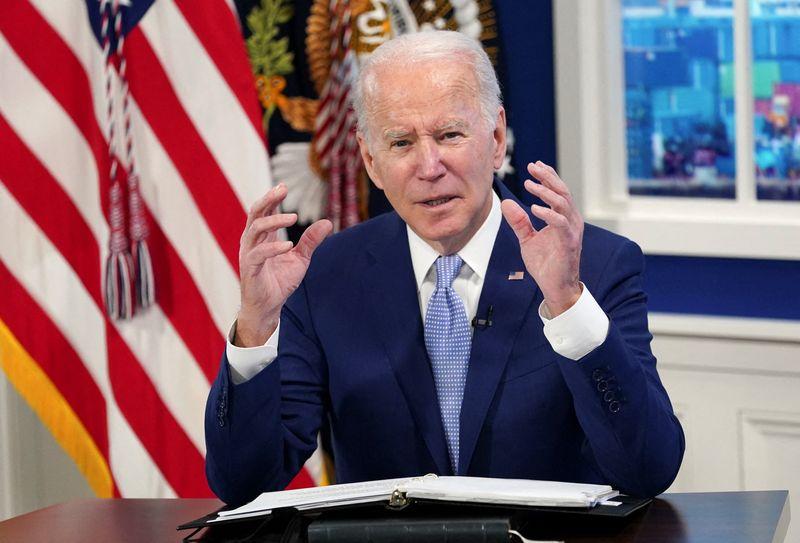
Reuters
Washington
US President Joe Biden on Thursday signed a law banning imports from China's Xinjiang region over concerns that cases of forced labor are occurring there, the White House said, prompting a angry condemnation from Beijing.

The Uyghur Forced Labor Prevention Act is part of the US pressure campaign against China's treatment of the Uyghur Muslim minority, which Washington calls genocide. The bill passed this month in the US Congress after lawmakers reached a compromise between their two chambers' versions.
read alsoKey to the rule is a "rebuttable presumption" that all products from Xinjiang, where Beijing has set up detention camps for Uyghurs and other Muslim groups, are made using forced labor. The law prohibits imports unless proven otherwise. Some products - such as cotton, tomatoes and polycrystalline silicon used in making solar panels - are considered "high priority".
China denies that it is committing abuses in Xinjiang, a major cotton producer that also supplies much of the world's solar panel materials.
read alsoHis embassy in Washington remarked that the act "ignores the truth and maliciously slanders the human rights situation in Xinjiang." "This is a serious violation of international law and norms of international relations, and flagrant interference in China's internal affairs. China strongly condemns and firmly rejects it," said embassy spokesman Liu. Pengyu, in an emailed statement. Liu warned that China will take further measures in response as the situation evolves, but did not elaborate.
Nury Turkel, Uyghur-American vice chairman of the US Commission on International Religious Freedom, told Reuters this month that the bill's effectiveness will depend on the Biden administration's willingness to ensure its effectiveness, especially when companies seek exemptions. .
read alsoUS Secretary of State Antony Blinken stated that presidential approval of the law underscores "the United States' commitment to combating forced labor, including in the context of the ongoing genocide in Xinjiang." "The State Department is committed to working with Congress and our interagency partners to continue to address forced labor in Xinjiang and to strengthen international action against this egregious human rights violation," he said in a statement.
One of the bill's co-authors, Democratic Senator Jeff Merkley, said it was necessary to "send a strong and unequivocal message against genocide and slave labor." "Now ... we can finally ensure that American consumers and businesses can buy products without being unwittingly complicit in China's horrific human rights abuses," he wrote in a statement.
read alsoIn its final days of January, the administration of former US President Donald Trump announced a ban on all cotton and tomato products from Xinjiang. The US Customs and Border Protection then estimated that in the past year the country had imported about $9 billion worth of cotton products and $10 million worth of tomato products from China.